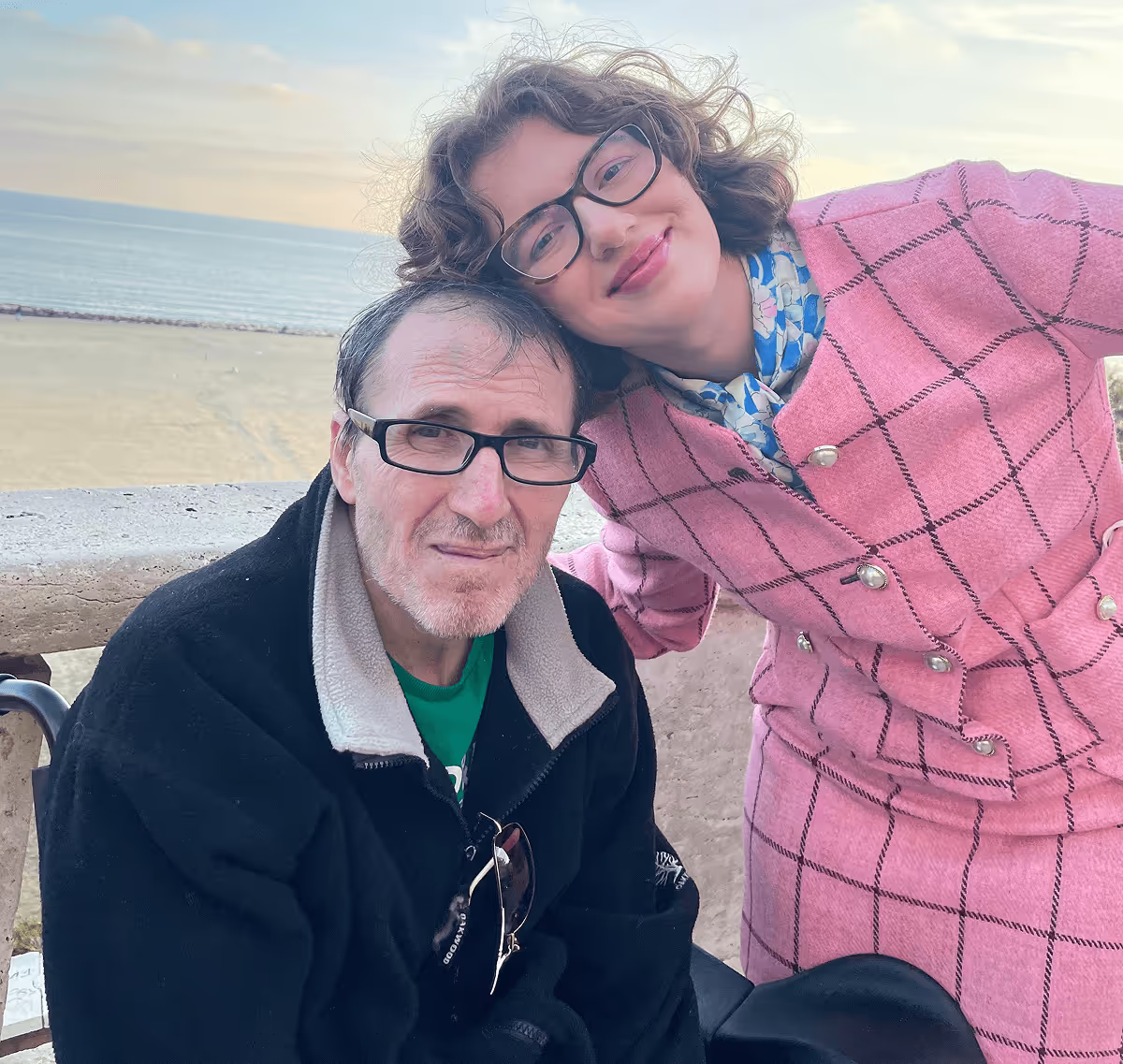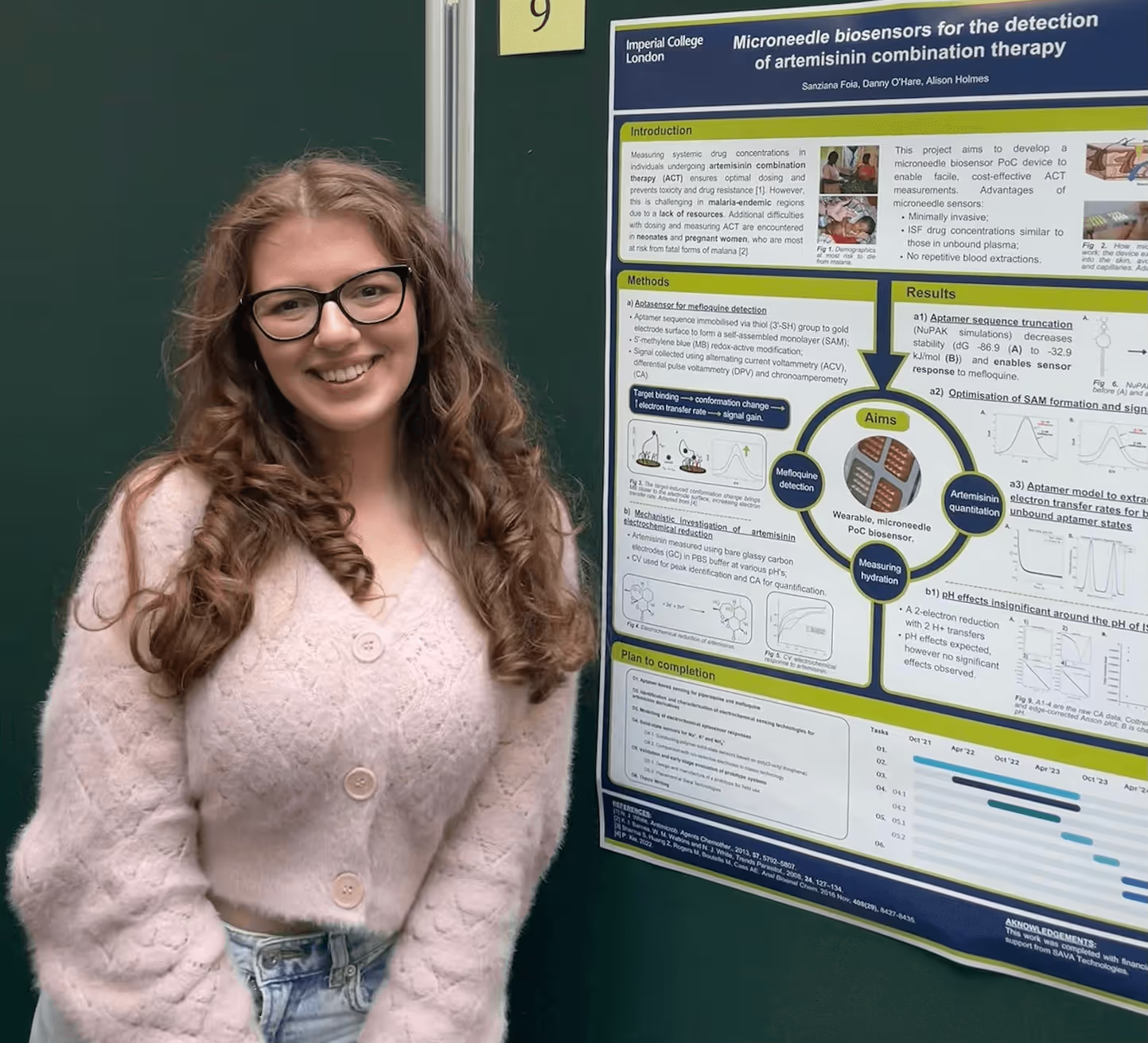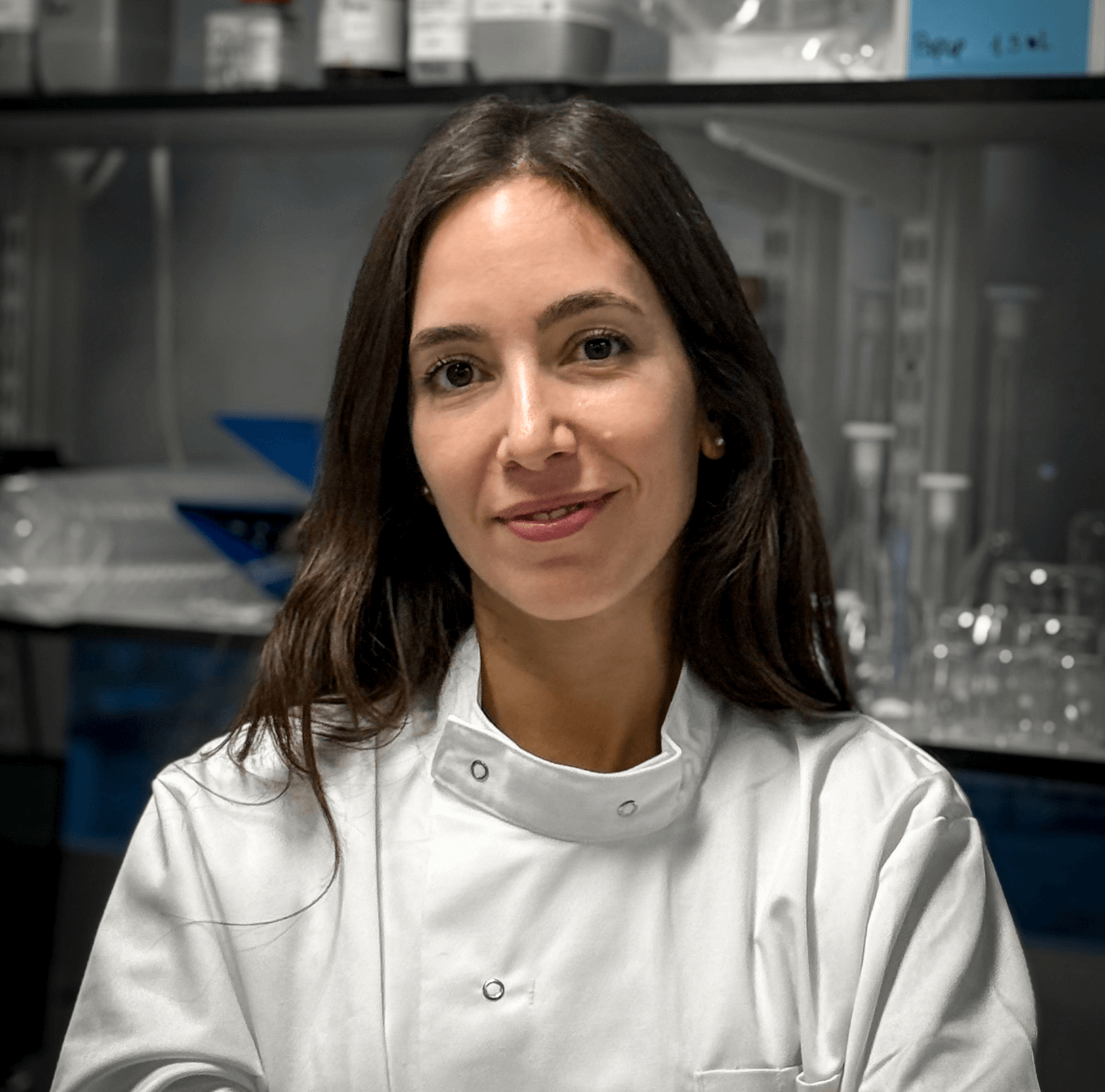Who we are
Papcup emerged from the Imperial College London innovation community, where early prototype data from the Imperial Hackstarter competition demonstrated the potential of advanced electrochemical biosensing to transform
cervical screening.
How Papcup was born

The spark
When I was 17, my father had a stroke. Amidst the fear and confusion, one thing became painfully clear to me: when health emergencies happen, we often rely on tests that are slow, distant, and difficult to access. Faster, closer, point-of-care diagnostics could change lives; so I decided to dedicate myself to building them.

The science
Fast forward to 2021, I was graduating from Imperial College London with a degree in Chemistry, having spent my master’s working on biosensors for cancer prevention. I started a PhD in Bioengineering at Imperial the same year, with the goal of putting myself at the forefront of biosensor science. I saw biosensors as the future of healthcare - of early detection, personalised health, and real health equity - and was impatient to create something that could revolutionise how we diagnose disease.

The mission
Then I had my first smear test, and realised how many women avoided cervical screening because the experience is uncomfortable, and often inaccessible. With a woman dying every 90 seconds from cervical cancer, this was a problem that couldn’t wait to be solved.
At Papcup, we’re using biosensor technology and empathetic design to build a screening experience that feels radically different: non-invasive, easy, and designed around real people’s lives. Papcup starts with cervical screening, but our mission is far bigger: to bring healthcare closer to the people it serves.
"We see a future where everyone has a window into their health: faster answers, actionable insights, and more control over their own data and wellbeing."
Sanziana Foia - Founder and CEO
Engineered with rigour, designed with empathy.
Powered by advanced electrochemical biosensing, our platform delivers non-invasive molecular detection without the need for a speculum. It combines scientific rigour with a design that finally puts comfort, dignity, and clinical performance on equal footing.
Team

Sânziana is an Imperial College London biosensor researcher and chemist specialising in point-of-care diagnostics. Her master’s research focused on nanopore biosensing for cancer biomarker detection, and her PhD work was on electrochemical biosensors for monitoring antimalarial combination therapy. Before founding Papcup, she worked at leading research institutions including the Francis Crick Institute, UCLA, and the Cambridge Crystallographic Data Centre. Her experience spans aptamer-based sensing, peptide therapeutics, nucleic-acid catalysis, and diagnostic device development.





Chiara is a biosensing engineer with a PhD from Imperial College London, where she developed portable microfluidic electrochemical sensors for real-time biomarker detection in critical care. Her expertise spans aptamer-based sensing, microfluidics, and lab-on-chip diagnostic platforms. She completed a postdoctoral fellowship at EPFL, advancing wearable biosensors for hormone and inflammation monitoring for women’s health. Chiara has been recognised with awards from the Royal Society of Chemistry and the British Neuroscience Association.


